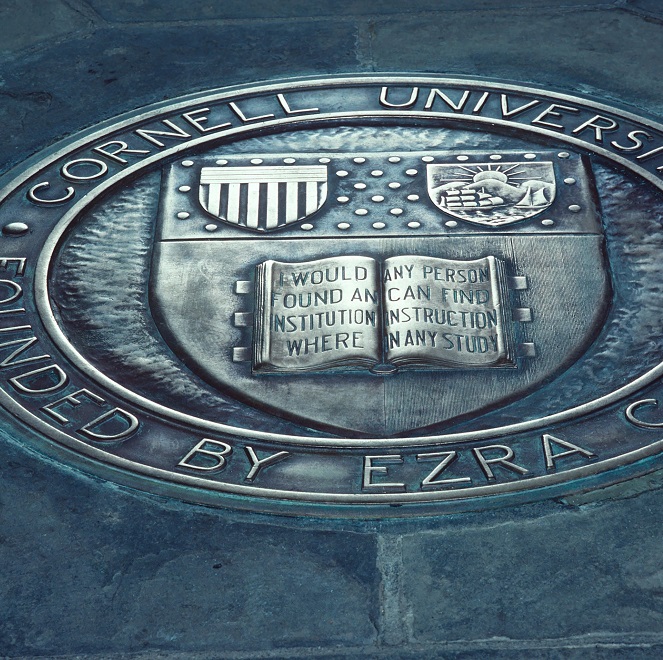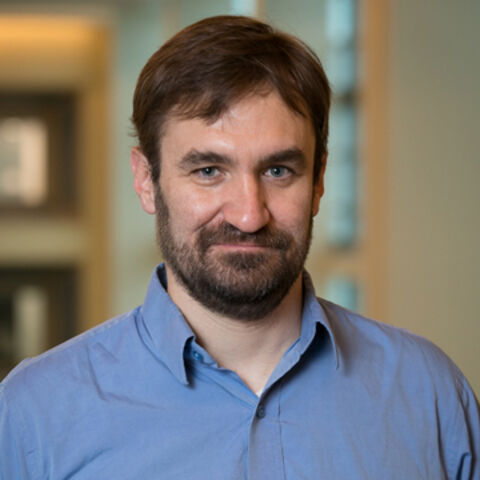News and Events
Full listing
October 5, 2022
A group of researchers led by Cornell is unlocking the full potential of aluminum nitride – an important material for the advancement of electronics and photonics – thanks to the development of a surface cleaning technique that enables high-quality production.
The research was published Sept. 9 in the journal Science Advances. Graduate student Zexuan Zhang and research associate Yongjin Cho are the lead authors. The senior authors are Debdeep Jena and Huili Grace Xing, both professors of materials science and engineering and of electrical and computer engineering.
September 23, 2022
Our guts, and all our organs, are arranged in left-right asymmetric patterns inside our bodies, so that everything may fit.
At the same time, development of organs such as the intestine is anything but haphazard. In healthy embryos, rotation of the gut during development always occurs in a counterclockwise direction and is perfectly timed. It’s a complicated process that scientists have long worked to understand.
, Click to open gallery view
Credit:Kurpios Lab/Provided
Chicken embryo intestinal tube where mechanical cues drive gene expression and gut patterning to prevent fatal obstructions.
Now, a study published Sept. 23 in the journal Science finds that gut rotation during development is orchestrated by two waves of expression of a transcription factor called Pitx2. The second wave, it turns out, is triggered by mechanical cues within an elastic tissue that anchors the gut tube, and later becomes a conduit for blood and lymphatic vessels that supply the gut tube.
September 21, 2022
A collaborative effort has installed electronic “brains” on solar-powered robots that are 100 to 250 micrometers in size – smaller than an ant’s head – so that they can walk autonomously without being externally controlled.
While Cornell researchers and others have previously developed microscopic machines that can crawl, swim, walk and fold themselves up, there were always “strings” attached; to generate motion, wires were used to provide electrical current or laser beams had to be focused directly onto specific locations on the robots.
“Before, we literally had to manipulate these ‘strings’ in order to get any kind of response from the robot,” said Itai Cohen, professor of physics in the College of Arts and Sciences. “But now that we have these brains on board, it’s like taking the strings off the marionette. It’s like when Pinocchio gains consciousness.”
September 13, 2022
To mitigate climate change, physicist David Specht, M.S. ’18, Ph.D. ’21, feeds electricity to microbes.
In turn, the insatiable Vibrio natriegens bacteria – the fastest duplicating organism on Earth, able to double itself in about 10 minutes – gorge on a sparky feast, but then the microbe can help scientists and farmers free up arable land, nourish livestock and feed farmed fish.
The V. natriegens endeavor is among the first “Moving Research to Impact” fast grants funded by the Cornell Atkinson Center for Sustainability as part of the 2030 Project: A Cornell Climate Initiative, which is mobilizing faculty to develop and accelerate tangible solutions to a warming world.
September 8, 2022
Professor Héctor D. Abruña, the E. M. Chamot Professor in the Department of Chemistry and Chemical Biology in the College of Arts and Sciences, has been awarded $8.3 million to further his group’s research related to fuel cells and advanced battery technologies.
August 29, 2022
Congratulations to Jan Lammerding, professor in the Meinig School of Biomedical Engineering, who has been elected a 2022 Fellow of both the Biomedical Engineering Society (BMES) and the American Society for Cell Biology (ASCB)!
BMES Fellow is a distinction reserved for only a few select members who demonstrate exceptional achievements and experience in the field of biomedical engineering, and a record of membership and participation in the Society.
August 11, 2022
A portable diagnostic device designed by researchers at Cornell Engineering and Weill Cornell Medicine has been deployed in clinical tests in Uganda to identify cases of Kaposi sarcoma, a common yet difficult-to-detect cancer that often signals the presence of HIV infection.
Now, thanks to a $4 million grant from the National Cancer Institute Center for Global Health, the rollout is expanding to 11 sites throughout sub-Saharan Africa, including locations in Kenya, Tanzania, Rwanda, Botswana and Malawi – where a shortage of diagnostic testing and pathology experts has led to long waits and sometimes erroneous results.
July 14, 2022
The President’s Council of Cornell Women has awarded a PCCW Affinito-Stewart Grant to ECE Assistant Professor Amal El-Ghazaly for her proposal titled “Highly Stretchable Pressure and Curvature Sensor for Soft Robots.”
The proposed research aims to develop a stretchable material-based sensor array to provide soft robots with a high-resolution sense of “touch.” When soft robots (which are filled with air) touch an external object, air within the body is displaced and puts internal pressure on other surfaces of the robot in addition to the point of contact. These two simultaneous pressures on the surface of the robot are indistinguishable from each other and can be confused.
“We are designing and building a sensor to differentiate these two,” El-Ghazaly said. “It measures the pressure but also curvature. Detecting the curvature tells the robot if it's an external object exerting the pressure, or just the internal air of the robot itself.”
July 1, 2022
Johannes Lehmann, Liberty Hyde Bailey Professor in the School of Integrative Plant Science’s Soil and Crop Sciences Section, was honored along with other recent winners of the Humboldt Research Award at a reception in Berlin June 23, 2022.
Sponsored by the Alexander von Humboldt Foundation, the award recognizes career excellence and funds opportunities to forge innovative collaborations with colleagues in Germany. "Humboldt’s ideal of a free, globally networked world of science is one which we again need to defend today,” said German President Frank-Walter Steinmeier, addressing the award recipients.
June 2, 2022
Solving societal problems such as climate change could require dismantling rigid academic boundaries, so that researchers from varying disciplines could work together collaboratively – through an “undisciplinary” approach, a new Cornell study suggests.
Instead of rallying around a specific mission, it’s best to incorporate a human approach and fixate on the process to find solutions. The work published May 16 in Nature’s Humanities and Social Sciences Communications.
“The research topic is remarkably unimportant as motivation to engage in collaboration, which flies in the face of relying on engagement merely around an important crisis such as climate change,” said co-author Johannes Lehmann, Cornell’s Liberty Hyde Bailey Professor, School of Integrative Plant Science Soil and Crop Sciences Section, in the College of Agriculture and Life Sciences.


